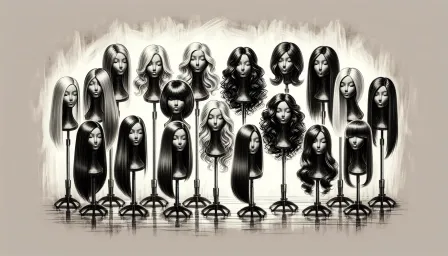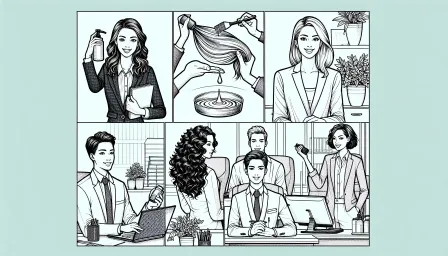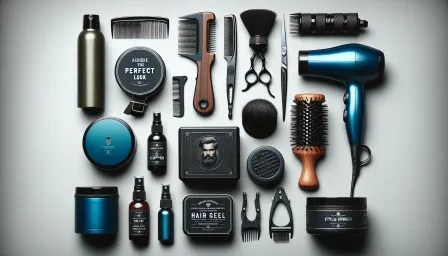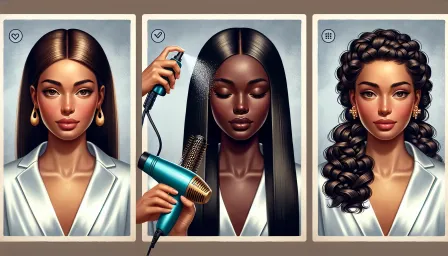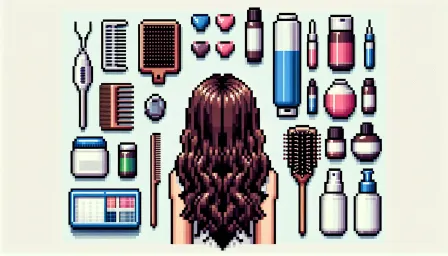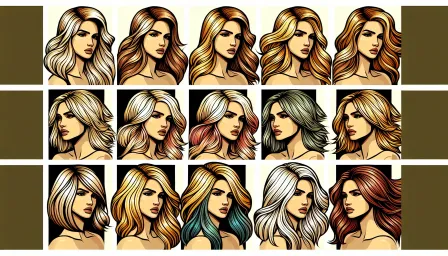Top 10 Dandruff Myths Debunked: What You Need to Know

Debunk common dandruff myths and discover the real facts. Learn about causes, treatments, and prevention to manage dandruff effectively.
Dandruff is a common scalp condition that affects millions of people worldwide. Despite its prevalence, there are many myths and misconceptions about dandruff that can cause confusion and prevent effective treatment. In this article, we'll debunk the top 10 dandruff myths and provide you with accurate information to help manage this condition effectively.
Myth 1: Dandruff is caused by poor hygiene
One of the most widespread myths is that dandruff is a result of poor hygiene. In reality, dandruff is often caused by a fungus called Malassezia, which thrives on the oils of the scalp. While regular washing can help manage dandruff, it is not a hygiene issue but rather a scalp condition that requires appropriate treatment.
Myth 2: Washing your hair frequently will cure dandruff
While maintaining a clean scalp is important, washing your hair excessively can strip it of essential oils, potentially worsening dandruff. It's crucial to find a balance and use a gentle, anti-dandruff shampoo that contains effective ingredients like zinc pyrithione or ketoconazole.
Effective Ingredients to Look For
- Zinc Pyrithione: Reduces fungal growth and inflammation.
- Ketoconazole: A broad-spectrum antifungal agent.
- Salicylic Acid: Helps exfoliate dead skin cells.
Myth 3: Dandruff is contagious
Dandruff is not contagious. You cannot "catch" dandruff from another person through direct contact or sharing personal items like combs or hats. It is a scalp condition triggered by internal and external factors unique to each individual.
Myth 4: Only people with dry scalps get dandruff
Dandruff can affect both dry and oily scalps. In fact, an oily scalp can create an ideal environment for the growth of Malassezia fungi, leading to dandruff. Therefore, dandruff management should focus on balancing the scalp's oil levels.
Myth 5: Dandruff is the same as a dry scalp
Dandruff and dry scalp are often confused but are not the same. Dandruff is characterized by oily, large flakes, and an overgrowth of Malassezia fungi, while a dry scalp results in smaller, dry flakes and itching. Proper diagnosis is key to choosing the right treatment.
Myth 6: Dandruff will go away on its own
Ignoring dandruff doesn't make it disappear. Without proper intervention, dandruff can persist or even worsen. Utilizing targeted treatments like anti-dandruff shampoos and consulting a dermatologist can help control and reduce flakes effectively.
Myth 7: All dandruff shampoos are the same
Not all dandruff shampoos are created equal. They contain different active ingredients designed to address various causes of dandruff. Finding the right shampoo that suits your scalp condition and type is essential for effective treatment.
How to Choose the Right Dandruff Shampoo
- Identify your scalp type: Oily or dry.
- Look for active ingredients that target the root cause.
- Consider the frequency of use: Some shampoos are designed for daily use, while others are more potent and should be used less frequently.
Myth 8: You can't dye your hair if you have dandruff
It's a myth that you can't dye your hair if you have dandruff. However, it's important to ensure your scalp is not overly irritated before dying your hair. Opt for hypoallergenic or gentle hair dyes and conduct a patch test to prevent any adverse reactions.
Myth 9: Natural remedies can't help with dandruff
While many over-the-counter treatments are effective, some natural remedies can help alleviate dandruff symptoms. Ingredients like tea tree oil, aloe vera, and apple cider vinegar have shown potential antifungal and soothing properties. Always combine these with a proper dandruff treatment plan for the best results.
Popular Natural Remedies
- Tea Tree Oil: Has antifungal properties.
- Aloe Vera: Soothes and moisturizes the scalp.
- Apple Cider Vinegar: Balances the scalp's pH levels.
Myth 10: Dandruff is a permanent condition
Dandruff can be effectively managed and controlled with the right treatment and care. Regular use of anti-dandruff products, a balanced diet, and maintaining scalp health can significantly reduce or even eliminate dandruff symptoms.
Conclusion
Understanding the truth behind common dandruff myths is the first step towards effective management and treatment. By debunking these myths, we hope to provide you with accurate information to address your dandruff concerns. Remember, if you are struggling with persistent dandruff, consult a dermatologist for personalized advice and treatment options.




